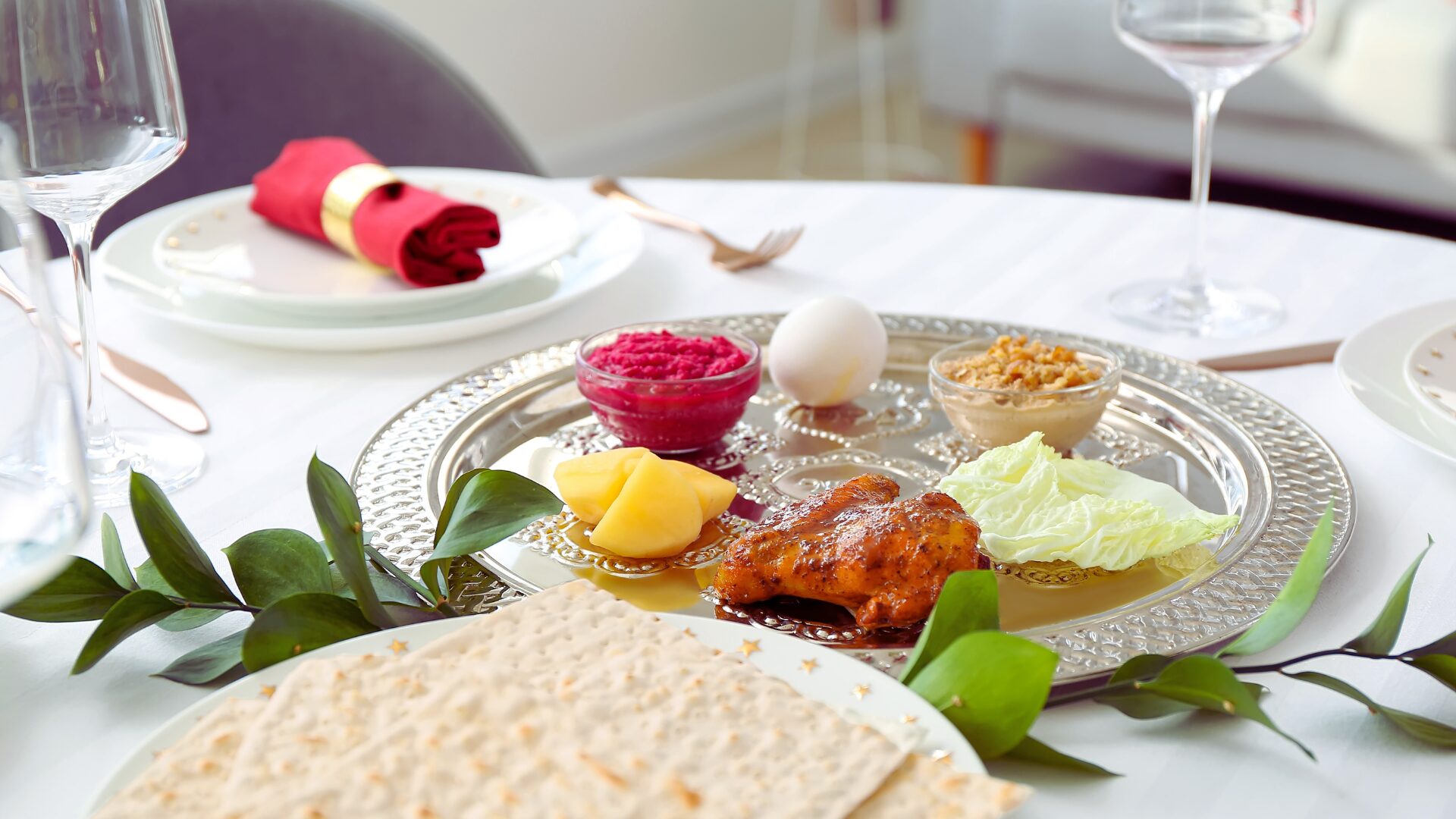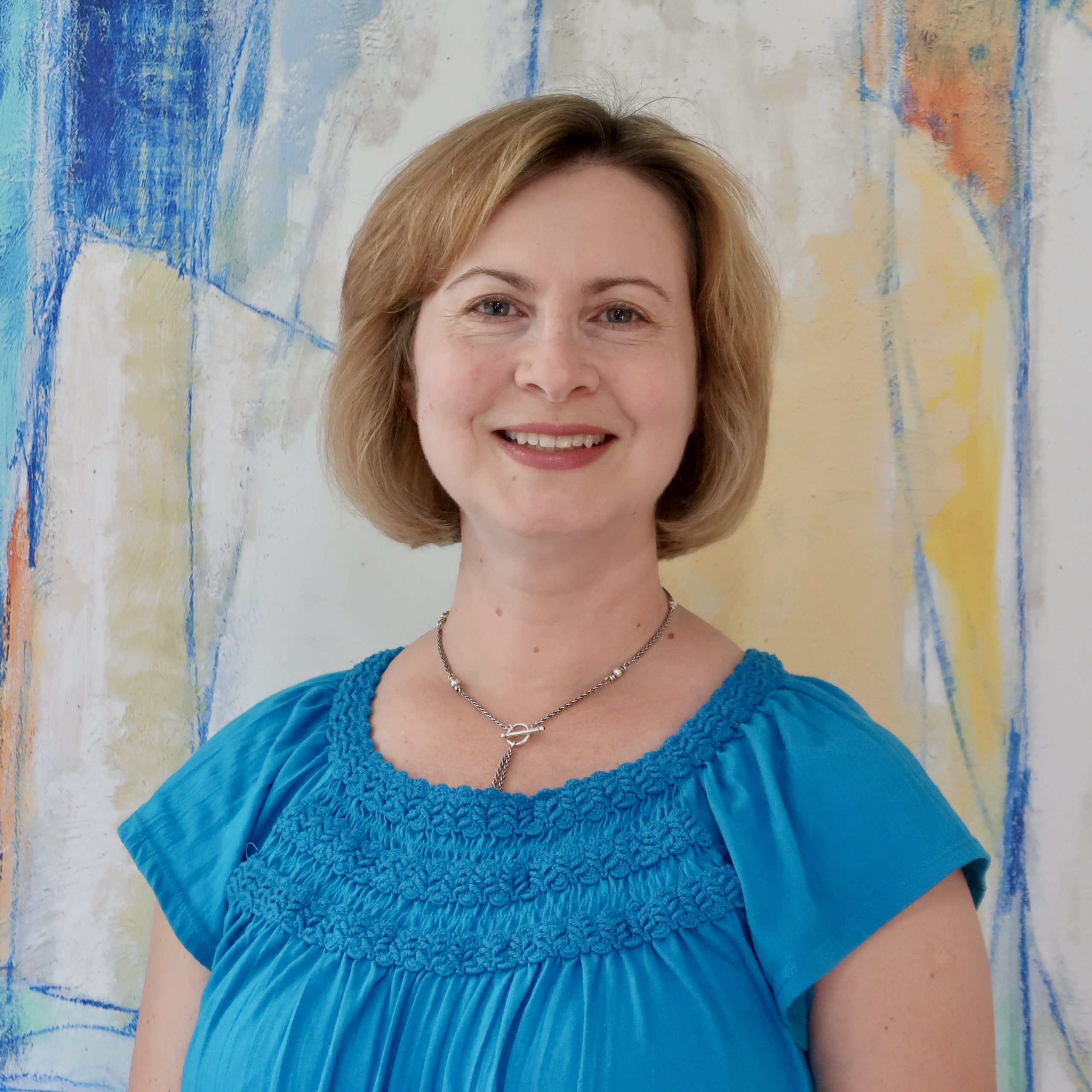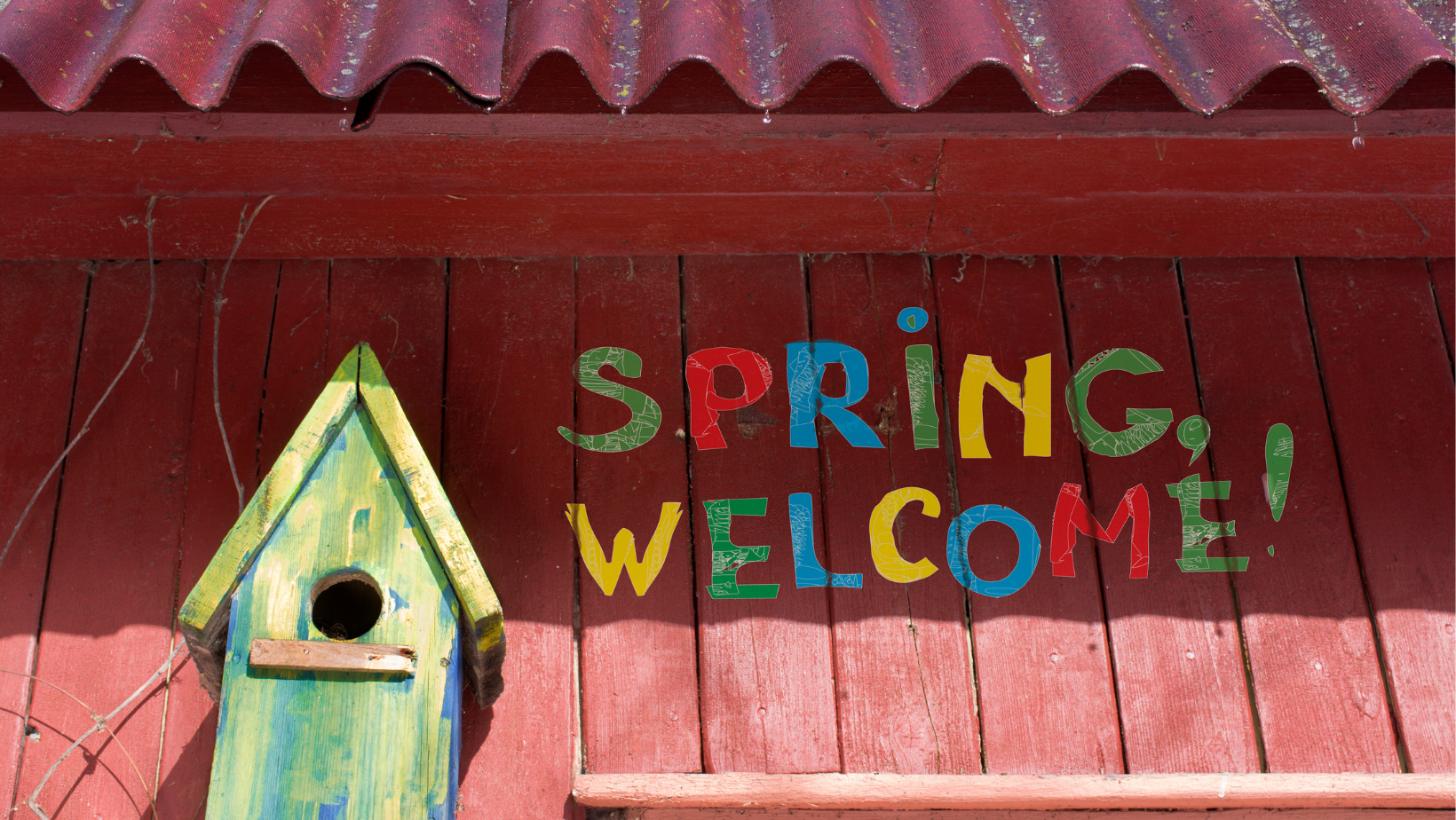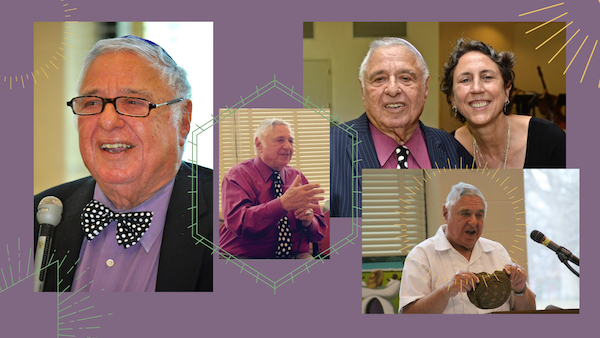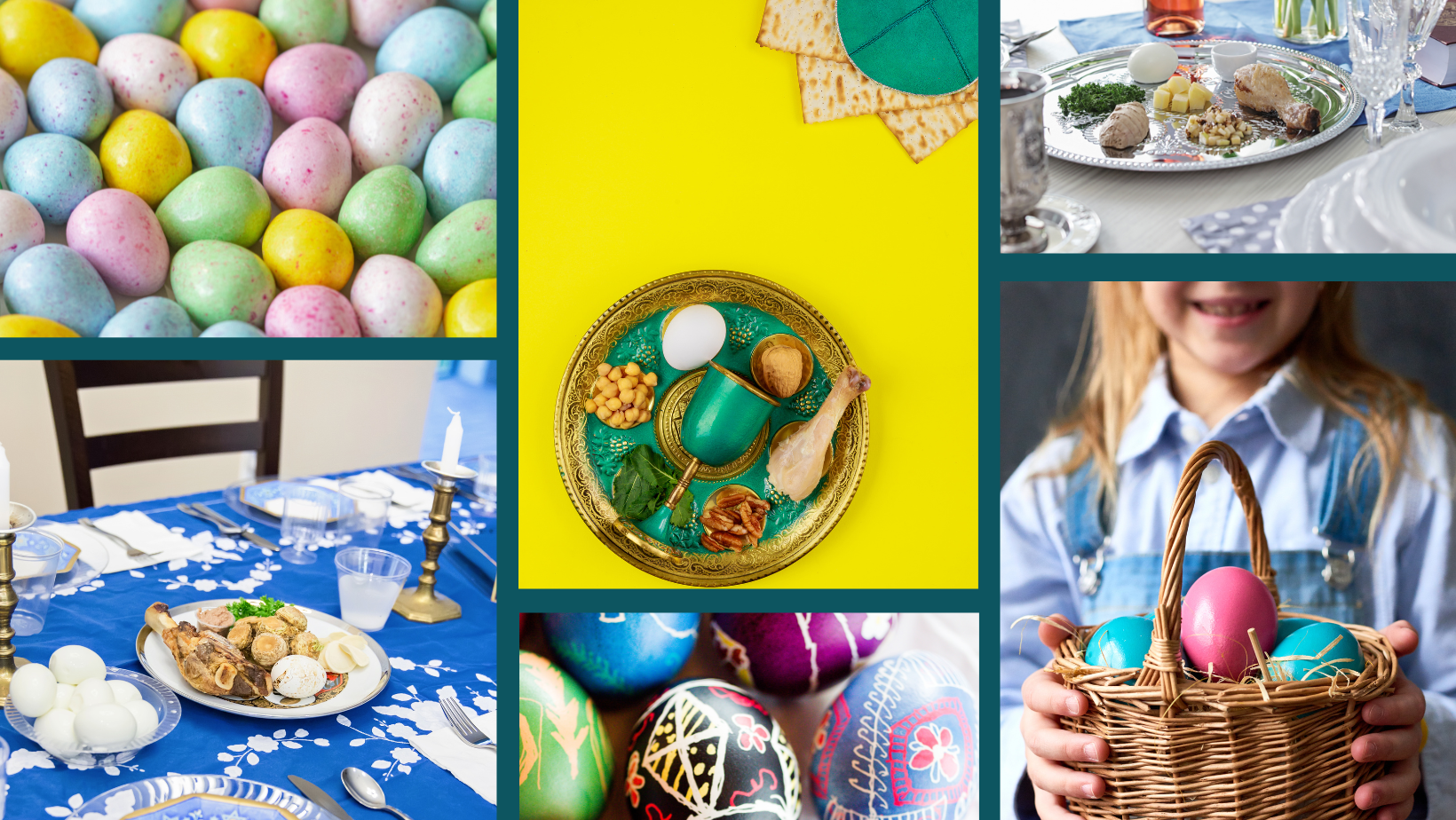Rabbi Debbie’s Supplemental Haggadah Readings for Passover 2025
Even as many of us will gather for the IFFP Seder on Sunday, April 13, Passover begins sooner than that. You may wish to incorporate additional readings into your own family celebrations throughout the week. Below are some readings I’ve gathered that I hope you’ll find meaningful and thought-provoking.
As we each enter this Holy Day season, my wish for you is to find joy in community, peace in your traditions, and renewal for your soul by the end of it all.
Wishing you a happy, peaceful, and meaningful Passover.
–Rabbi Debbie, April 2025
A Prayer by Satmar Ḥazan Naphtali Stern, z”l, in 1944, from the Wolfsberg Labor Camp
There is no society without worshippers,
There is no time without someone who prays,
There is no place that cannot be transformed into a place of prayer
And there is no human being who does not, in the privacy of his heart,
Embrace a silent prayer, offered up to the hidden powers,
To redeem him from his distress
To improve his condition and to better his lot.
The human being is a being who prays.
The Retelling by Ellen Blum Barish
At my seder table,
I learned that some stories need to be told more than once
to make us stop, gather together and tell it aloud
though we have heard it many times before
so we remember.
Every spring, we read the same story of our exodus from Egypt
but it is never the same twice.
Every spring, someone is missing for work, move, illness or death.
Every spring, there’s a new mood or geo-political incident.
The annual retelling is like the sharing of all hard stories,
never told the same way twice.
never heard the same way twice.
It is a crossing over a desert of shifting sand
that allows us to see something that we hadn’t before
as if for the first time.
Reflection by Rabbi Matthew Goldstone PhD
The seder is full of “fours” – the four cups, the four questions, the four children, etc. But there is another, relatively unknown, four in the Passover story from when the Israelites were standing before the sea and Pharaoh’s army was approaching. According to the midrash:
“The Israelites at the Red Sea were divided into four groups. One group said: Let us throw ourselves into the sea. One said: Let us return to Egypt. One said: Let us fight them; and one said: Let us cry out against them.”
At the moment of crisis, when they were ostensibly trapped between sword and water, the people could not agree on the proper course of action.
At our seders this year we might find divisions among family and friends as to what should have been done in response to the events of October 7th and what Israel – and the world Jewish community – should do next. Or we ourselves, as individuals, might be internally conflicted about decisions – big or small – that Israel and our communities have made in response to the act of terror and ensuing antisemitism.
Like the ancient Israelites, Jews today hold different opinions about the best course of action in moments of crisis. Ultimately, in the Exodus story, it turns out that none of the Israelites’ recommended responses carried the day. Instead, Moses pleaded that the people trust in God, and God intervened to provide redemption. While we cannot simply wait for miraculous intervention today, the midrash teaches us that we do not need to have all of the right answers, and sometimes, in moments of crisis, we simply do not know the correct path to take.
Being an Egyptian, Rabbi Anat Katzir
Almost every year, at some point when we read the plagues, after remembering how bad it was to be an Israelite slave and finding hope in the faith and endurance of my people, I think to myself. Yeah, being a slave in Egypt must have been awful, and we had Moses, and Aaron, and Miriam, and maybe God.
But what was is like to be an Egyptian?
I’m not thinking about the hard- hearted Pharaoh or one of the fancy Egyptians, with headdresses and makeup, who lived in the palace and had bowls of jewelry they could taunt Israelite captured babies with.
I mean the simple Egyptians, that worked in the field. Whose crops were eaten by locusts, whose livestock died from disease. They sat there scratching their heads, perhaps from lice, perhaps because they couldn’t understand why all these horrible things were happening to them. What must have been their pain as they held their eldest children in their arms in that final plague… Were there no uninvolved Egyptians?
As I sit and eat the bitter herb and charoset, and pray for freedom for children of Israel, I also wonder what food symbolizes the pain of those who have no choice? What is the food of the voiceless, caught up in someone else’s war?
Maybe brussels sprouts. Bitter, but if given time, and cared for properly, can become something good. Or maybe because sprouts have hope.
Source of Life, Source of Mercy, may we be blessed with compassion and with hope.
From Rabbi Jonathan Sacks z”l 2004
Moses became a hero because he had “greatness thrust upon him.” He led Israel not because he chose to, but because he was commanded by God. In contrast to the story we know of Moses, we have Yocheved, Miriam, Bitya, Tzippora, Shifra, and Pua. These women were not commanded. They acted because they had a strong moral sense, indomitable humanity, and an intuitive grasp of what heaven asks of us on earth: they “feared God.” The monument the Torah erects to freedom, the sovereignty of God, and the sanctity of life bears the names of those women who by their courage showed that though tyranny is strong, compassion is stronger still.
Author Unknown
On this night,
We retrace our steps from then to now, reclaiming years of desert wandering.
On this night,
We ask questions, ancient and new, speaking of servitude and liberation, service and joy.
On this night,
We welcome each soul, sharing stories of courage, strength and faith.
On this night,
We open doors long closed, lifting our voices in songs of praise.
On this night,
We renew ancient hopes and dream of a future redeemed.
On this night,
We gather around Seder tables, remembering passage from bondage to freedom.
On this night,
We journey from now to then, telling the story of freedom.
Every Truth Spoken Is a Step Toward the Promised Land by Alex Carter
When I speak the truth to myself – saying, this is who I am
I take a step out from the narrow place and open a space for miracles.
My steps take me to the edge of the waters.
Unsure what this journey will bring,
I place my trust in the liberating Power, and move forward.
When I speak the truth to family and friends – saying, these are the ones I love
I join beloved others on the journey.
In the desert, we may know great loss
As we move through unfamiliar terrain.
Yet we continue, seeking to know holiness and ourselves.
When we speak the truth to each other, saying, we are united in our diversity
We create a holy community, an embracing army of lovers.
Truth has brought us here, and we sing our songs of freedom.
The clear waters of the oases reflect our growing strength
And we journey on, refreshed for what may lie ahead.
When we speak the truth to power – saying, this is who we are
We reach back to help those still stifled in Mitzrayim, or poised
Uncertain at the shore.
And still we sing, remembering what we have accomplished,
Committing to the work that remains.
We reach forward to create a promised land
For all created in the image of the Eternal
By Martin Luther King, Jr. and Abraham Joshua Heschel
LEADER: Prejudice is like a monster which has many heads, an evil which requires many efforts to overcome. One head sends forth poison against the people of a different race, another against the people of a different religion or culture. Thus the evil of prejudice is indivisible.
GROUP: Human progress never rolls in on the wheels of inevitability. It comes through the tireless efforts and the persistent work of dedicated individuals who are willing to be co-workers with God. Without this hard work, time itself becomes an ally of the insurgent and primitive forces of irrational emotionalism and social stagnation.
LEADER: What is called for is not a silent sigh, but a voice of moral compassion and indignation, the sublime and inspired screaming of a prophet uttered by a whole community.
GROUP: The voice of justice is stronger than bigotry and the hour calls for that voice as well as the concerted and incessant action.
LEADER: I have personal faith. I believe firmly that in spite of the difficulties of these days, in spite of the struggles ahead, we will and we can solve this problem. I believe there will be a better world.
Author Unknown
Let’s bring Dayeinu into the present. We are grateful, and yet what miracles and accomplishments would be sufficient (Dayeinu) in today’s world for us to be truly satisfied?
1. When all workers of the world receive just compensation and respect for their labors, enjoy safe, healthy and secure working conditions, and can take pride in their work… DAYEINU (everyone says this out loud each time)
2. When governments end the escalating production of devastating weapons, secure in the knowledge that they will not be necessary… DAYEINU
3. When technology is for the production and conservation of energy and our other natural resources is developed so that we can maintain responsible and comfortable lifestyles and still assure a safe environment for our children… DAYEINU
4. When the air, water, fellow creatures and beautiful world are protected for the benefit and enjoyment of all… DAYEINU
5. When all politicians work honestly for the good of all… DAYEINU
6. When all women and men are allowed to make their own decisions on matters regarding their own bodies and their personal relationships without discrimination or legal consequences… DAYEINU
7. When people of all ages, sexes, races, religions, cultures and nations respect and appreciate one another… DAYEINU
8. When all children grow up in freedom, without hunger, and with the love and support they need to realize their full potential… DAYEINU
9. When all children, men and women are free of the threat of violence, abuse and domination; when personal power and strength are not used as weapons… DAYEINU
10. When all people have access to the information and care they need for their physical, mental and spiritual well-being… DAYEINU
11. When food and shelter are accepted as human rights, not as commodities, and are available to all… DAYEINU
12. When no elderly person in our society has to fear hunger, cold, or loneliness… DAYEINU
13. When the people of the Middle East, and all people living in strife, are able to create paths to just and lasting peace… DAYEINU
14. When people everywhere have the opportunities we have to celebrate our culture and use it as a basis for progressive change in the world… DAYEINU
All: If tonight each person could say this year I worked as hard as I could toward my goals for improving this world, so that one day all people can experience the joy and freedom I feel sitting with my family and friends at the Seder table… DAYEINU, DAYEINU
Lewis John Eron
When did we leave Egypt and when did Egypt leave us? When were the chains of slavery broken and when did we finally truly feel free? Freedom came in steps. It was part of the journey from Egypt to Canaan our people took and we can still take. Freedom is courage and hope and clear vision. Freedom is walking to a place we can’t see. Freedom in knowing that we can find food in the desert. Freedom is feeling safe though our houses are booths. Freedom is choosing good rules to live by and freedom is singing our very own song.
Sharon Cohen Anisfeld, Women’s Seder Sourcebook
Words fail. The story of bitterness is the most difficult to tell, perhaps because it is not really a story after all. It is a taste in the mouth. The taste of sharp words — unspoken — dissolving on the tongue. The taste of swallowed anger. Heartburn. It is useful to eat as big a chunk of these bitter herbs as one can bear. If there is hope, it lies in the tears that well up in the eyes and the clear-headedness that comes after.
Excerpt from Rabbi Michael Lerner, 2015 Passover Supplement
Yet the message of Passover and Easter is that we are not stuck; that liberation and transformation are possible; and that we should celebrate the partial victories of the past in order to gain both perspective and hopefulness about the future. No, not the hope that some politician is going to save us, but the hope that we ourselves can become mobilized to engage in tikkun olam (the healing, repair, and transformation of our world). Just as the Israelites who were emancipated from slavery in Egypt (celebrated on Passover) became mobilized through retelling the story to their children, and just as the early Christians who encountered Jesus’ liberation message for the poor started rejecting the injustice around them, we can begin to live as witnesses to the possibility of a different world.
Author Unkown
What does this mean, ‘it would have been enough’? Surely no one of these would indeed have been enough for us. A Jewish philosopher was once asked, “what is the opposite of hopelessness?” And he said, “Dayenu,” the ability to be thankful for what we have received, for what we are. Dayenu means to celebrate each step toward freedom as if that were enough, then to start on the next step. It means that if we reject each step because it is not the whole liberation, we will never be able to achieve the whole liberation.
Author Unknown
Dear God! Already there has been wrath poured through our world. We need Your healing love more than ever.
Pour out Your love on nations that know You, and realms that call Your Name, for the caring deeds they perform for all who limp in the world, for their defense of all who wrestle with God.
May all who pour love into the world merit the Sukkah of Peace, and may they rejoice among the joy of all Your nations.
Spread over us wings of peace: Shalom
And then, and then, Judy Chicago
And then, and then
All human beings will be gentle
And then, and then
All human beings will be strong
And then all will be so varied, rich, and free
And everywhere will be called Eden once again.
